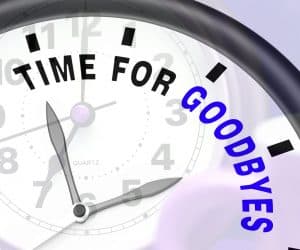Causes of low self-esteem can be recognized and low self-esteem can be unlearned. A lack of self-esteem is a corrosive force, eroding our confidence and inevitably causing major harm to our ability to form lasting, loving and healthy relationships.
Some of us wear our self-esteem lightly, untroubled by self-doubt or life’s changes. Others strap their self-esteem on like a power suit, an internal armor against those inner nagging seeds of self-doubt. For others, life is a continual struggle to come to terms with chronic and even crippling self-esteem issues. The good news is self-esteem is learned not inherited. Here are the five habits that contribute to low self-esteem that you want to be aware, thus you can put a plan in place to counter their influence, effectively banishing them from your life.
Table of Contents
The Enemy Within

A Buddhist monk once said to me, ”The greatest success you can achieve is the ability to win over oneself”. I cannot agree more with that statement. We are the only one responsible for the outcome of any situation we’re in both mentally and physically.
Poor self-esteem can convince us of many things. It blocks us from succeeding, stops us from trying in case we experience rejection, setbacks, or even soul-destroying failure. These feelings can persuade us to retreat from life, preventing us from experiencing the richness life has to offer. Low self-esteem can even trigger depression.
Self-esteem is our internal mirror onto our consciousness. It affects how we perceive ourselves and how we interact with others, family, friends, lovers or work colleagues or acquaintances we encounter as we live our lives. In fact, it shapes how we engage with the world around us. Few topics have generated so much light and heat and so many conflicting theories as to the causes of low self-esteem.
Automatic Negative Thoughts

Many of us find it deceptively easy to lapse into patterns of unhealthy thoughts. I still remember days where I used to just sit and let all negative thoughts ran through my head and sadly believe in them. Countering these ‘bad’ thoughts can be a daily battle against unseen forces popping ideas unbidden into our heads. One of the most toxic causes of low self-esteem, you need to wash off from your mind daily.
Psychologists use the term automatic negative thoughts to describe these subconscious thoughts, which often have such devastating effects on our emotional lives, leaving turbulence and confusion in their wake. Aaron Back one of the founders of cognitive therapy in the 1960’s concluded that automatic negative thoughts comprised a form of self-sabotage, creating a harmful and repetitive cycle of mutually reinforcing misery, which surfaced as unhappiness, anxiety or anger.
Back believed our brains became habituated into these patterns of thought, leaving its sufferers trapped on the same old neural pathways, leading to endlessly repeating negative thoughts, over and over again.
Once researchers believed our brains were fully developed after childhood and could not be retrained or re-patterned. Since Beck’s pioneering work, evidence has emerged that the brain’s plasticity can be guided or trained into disrupting this toxic cycle, replacing it with a healthier and more robust pattern of thinking. We can learn to identify the causes of low self-esteem and adopt coping mechanisms. Studies of patients with brain damage have shown it is possible to tap undamaged parts of the brain to compensate for a brain injury.
Hence it is possible for people with low self-esteem to be coached to develop new ways of thinking, which break those old repetitive patterns of negative thinking and replace them with new ways of visualizing themselves, their environment and their lives.
The first step on this new path is to increase your awareness of those old patterns of automatic negative thoughts. One approach is to draw or sketch those thoughts. Granting them visual form can depersonalize them, separating them for you as an individual, making them easier to think of as an external force, which can be modified, controlled or even expelled.
Wrong Crowd

Most of us agree that others should not define our happiness and feelings of self-worth but like Les Brown said, “Birds of a feather flock together. You run around with losers, you are going to end up a loser”.
Many relationships can feel like a burden or an obligation. We can find ourselves surrounded by bad friends and family members who are not supportive, yet we’re so accustomed to these feelings that we fail to recognize them for what they are. This ‘bad friends’ syndrome can generate stress at a subliminal level, which we often fail to recognize. We don’t notice just how much pain these floundering relationships are causing us because we become used to the constant, nagging pain. These feelings are akin to a low-grade toothache constantly growling away in the background
The link between our relationships and our feelings of self-esteem are frequently more closely entangled than many realize. One of the first steps to taking control of your feelings of self-esteem is to do an assessment of your relationships. It is one of the hardest processes that anyone can go through as it is not easy to let go of the people that we invested our time for many years. However, it is one of the essential steps that you must do in order to find yourself the right people who inspire and support you. Look for friends who will be there for you when times are tough, not just when the going is good, who are honest and genuinely care.
There are seven common signs you have fallen in with the wrong crowd:
- They make you feel awkward and unattractive
- They don’t support who you really are or what you are trying to do
- They only respect you when you conform to their ideas on life and living
- They thrive on negativity, leaving it flourishing in their wake
- They don’t believe in you
- They endorse your tendency for self-abuse and
- They aren’t there when you need them most!
Some people you encounter in life are black holes for negativity; they drain your passion and sense of purpose. Others nurture your soul. It is not always where you are in life, it is often who you have at your side. When you understand the causes of low self-esteem and leave the wrong people in your rearview mirror, the right things magically start happening. How would you feel if you surrounded yourself with people who made you feel all right with the world, which left you feeling better about yourself? Think of the changes that would be possible if you spent time with people who appreciate you, as you were, who made you a better person.
Life is too short and its opportunities too wondrous and inspiring to be wasted with bad friends, people who simply don’t treat you well.
Having No Backbone

One of the byproducts of low self-esteem is a reluctance to challenge others or stand up for our own perspectives. We avoid even low levels of confrontation, leaving it to build inside us, leaving us feeling angry and ashamed. Sometimes this starts with bullying in school, from family members and translates into passive behavior in the workplace. Often an unsatisfactory encounter will leave us feeling scared and frightened, even intimidated. As adults, we experience social pressure not to be confrontational, rude or violent. The result is one of the major causes of low self-esteem; repressed feelings that we can’t be open about how we truly feel.
There are five universal signs that your backbone may be in need of stiffening:
- You are a universal doormat
- You are constantly referred to as ‘naive’
- You are rarely taken seriously
- You forgive and forget too readily
- You fall in love fast and you fall hard!
Being compliant and passive is not a recipe for a healthy internal life. Regularly avoiding conflict rarely brings peace and happiness but rather acts as a fast breeder reactor for simmering tension and resentment.
A major problem with not engaging in an argument or expressing your point of view is that your partner, friend or work colleague end up having a relationship with only half a person, and the medium to long term consequences of that situation frequently leads to a further undermining of our already low self-esteem.
Becoming more adept at expressing your feelings is as much a matter of practice as it is of venting frustrations and anxiety. To succeed in life or in business, an individual must channel an element of competitiveness, resilience, tenacity, and fearlessness. These are learned behaviors we can acquire and sculpt to fit our personality, enabling us to become stronger, more confident and more influential in both our private and our professional lives. Growing a stiffer backbone can change not only the outcomes of individual situations we encounter as we go about our lives, but also how we are perceived at work and in our home lives.
Lack Of Goals and Dreams

Goals and dreams whether overt or covert keep us motivated and focused. Without something to aim for, it is easy to sink into the trap of low self-esteem and wavering self-confidence. Hence the absence of goals and dreams is one of the main causes of low self-esteem.
Usually, low self-esteem is very much a package deal. It comes with a bundle of areas you lack confidence in, obscuring your real strengths and weaknesses. Goal-setting in this context is fraught with compensatory behavior as you set goals more to compensate for your perceived failings, real or imagined. These goals are inevitably based on a contorted sense of self and drive behaviors, which avoid confrontation with low self-esteem at the expense of being truly happy.
If we don’t dream, we will never achieve our potential and we will never take those first steps to achieve our dream outlook on life. Low self-esteem and self-confidence induce us to give up on dreams before they have an opportunity to transition into reality. If we don’t believe, we don’t dream and often dreaming provides the essential drive that keeps us going, regardless of adversity. In losing the belief in dreams, we lose a lot of ourselves.
Goals and dreams lead us to expect success, it prepares us to take risks and to trust in our capabilities. Above all else, having goals and dreams encourages us to embrace the unknown. Self-confidence stems from self-awareness and self-belief. It also comes from understanding that you alone are not responsible for creating your world. Sometimes life’s ups and downs are just that, ebb tides of turbulence that sweeps you up and carries you along.
Social Media

For those suffering from low self-esteem, FaceBook, Twitter, Snapchat, LinkedIn and Instagram and their social media kin should carry a health warning. In the world of social media, lives are perfect. To paraphrase one online commentator, “May your life someday be as awesome as you pretend it is on FaceBook.” Social media and self-esteem are inextricably linked. Facebook and Instagram have emerged as the lens through which we compare ourselves with the world and our peers.
The negative effects of social media surface here, in our very natural instinct, this desire to compare our lives with those of others to judge our progress through life. Noted psychologist Leon Festinger called this “social comparison” theory in the 1950s. Karen North a clinical professor of communication and the University of Southern California’s Annenberg School for Communications and Journalism, believes social media is a modern take on a very old trait, “The only thing that really changes is the technologies that mediate our behavior. Now we’re rediscovering psychological principles as they are playing out using digital devices.”
Emerging research indicates social media and self-esteem are linked by this need for comparison can undermine our self-esteem and even lead to depression. People just feel bad after spending time on Facebook comparing themselves to others. As North put it, “This is one where people’s gut instincts are correct that reading things on Facebook can make people feel bad about themselves. But it’s complicated because there are all of these nuances.”
Once a simple digital diary for staying connected with family and friends by sharing memorable events, it evolved into a platform for sharing the most remarkable or unique moments, driven by our desire for ‘Likes’. History has become airbrushed with often devastating results for those plagued by self-doubt or fragile self-esteem. As our audience has broadened from close family and friends to embrace co-workers, potential employers, ex-lovers we feel increasingly under pressure to impress.
Despite knowing social media can make us feel sad, envious or depressed, we still scroll daily through our social media feeds to see if people in our network have achieved the goals we hoped to set for ourselves. There is a very real fear of missing out if we don’t obsessively check our smartphone every few minutes. This results in self-imposed pressure to share and spin progress through life. Photoshop has migrated from the design studio to our homes. “On Facebook or Instagram, you don’t have the benefit of observing people in their natural environment,” North says. “What you see instead is the façade or presentation that people want to portray.” This façade brings to life the potential negative effects of social media.
Many articles that I have read always put social media as the top causes of low self-esteem. However, it only plays a small role in affecting our lives negatively. If you don’t suffer from one of the four conditions discussed above, social media will have minimal impact on your self-confidence. Nowadays, I can scroll down my Instagram or Facebook feeds and feel nothing unlike before I allowed it to consume my confidence and filling me with envy and dread.
Our self-esteem is comprised of our thoughts, feelings, opinions we have about ourselves. This inner view of our world is often colored and shaped by our life experiences. Happily, self-esteem isn’t a fixed constant. Rather, it can change depending on our patterns of thought and ways of thinking. There are many causes of low self-esteem. Over time, habitual negative thinking can lower our self-esteem and undermine our self-confidence to the point where we lapse into depression.
In many cases, we don’t even recognize we are thinking negatively about ourselves. Once we become aware of these negative habits, we can change the way we think, introducing positive, beneficial changes, which can significantly alter how we perceive ourselves and thus how we think of ourselves, dramatically reshaping our self-esteem.
Related Posts:
- 25 Self-Esteem Activities and Challenges For Anyone
- 7 Self-Esteem Activities for Kids, Raise Them to be Better Than You
- Always Believe In Yourself and Learn Why Most People Are Insecure
- 79 You Got This Quotes To Make You Unstoppable Even When They Doubt You
- 89 Self-Motivation Quotes To Keep Going When Life Says Quit


